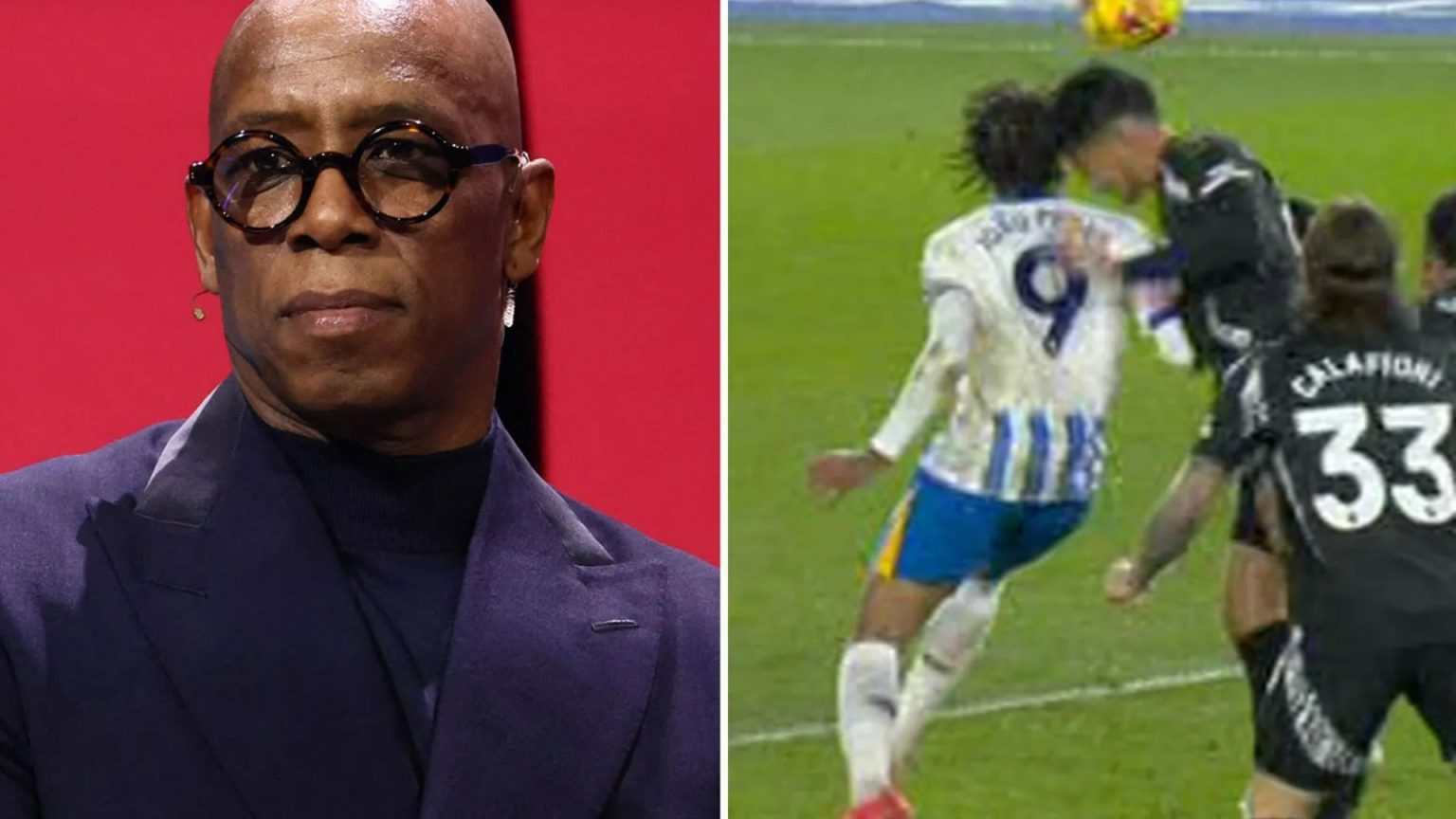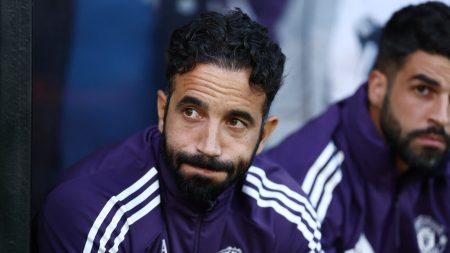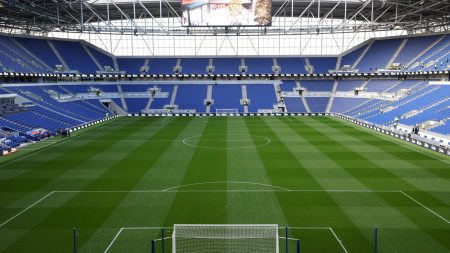The controversial penalty decision awarded to Brighton against Arsenal during their recent Premier League encounter has ignited a firestorm of debate, with Arsenal legend Ian Wright leading the charge in condemning the officiating. Wright, speaking on Optus Sport, vehemently criticized the decision, asserting that Premier League referees are the “worst in Europe.” The incident in question involved Arsenal defender William Saliba, who mistimed a header and subsequently made contact with Brighton striker Joao Pedro. Referee Anthony Taylor promptly pointed to the spot, awarding a penalty to Brighton, a decision upheld by VAR after review. Wright argued that the contact was minimal and insufficient to warrant a penalty, expressing his frustration with the perceived inconsistency and poor quality of officiating in the Premier League. This incident underscores the ongoing tension surrounding refereeing decisions and their impact on the outcome of matches, particularly in a tightly contested title race.
The penalty decision, and Wright’s subsequent outburst, further highlights the growing concerns surrounding the standard of refereeing in the Premier League. While VAR was implemented to minimize errors and provide greater clarity in contentious situations, it appears to have, in some instances, exacerbated the issue, leading to more confusion and debate. Wright’s strong words reflect a sentiment shared by many fans and pundits who feel that the quality of officiating has not kept pace with the rapid evolution and increasing scrutiny of the modern game. This perceived disparity between the high level of play and the often-controversial officiating decisions creates a sense of injustice and undermines the integrity of the competition.
Arsenal manager Mikel Arteta echoed Wright’s sentiments, expressing his bewilderment and disappointment with the penalty decision in his post-match interview. Arteta insisted that Saliba had made contact with the ball, implying that the foul, if any, was minimal and did not warrant a penalty. His frustration was palpable, reflecting the high stakes of the game and the impact of such decisions on the title race. The draw against Brighton dealt a significant blow to Arsenal’s title aspirations, dropping them further behind league leaders Manchester City. This incident further fuels the debate about the consistency and accuracy of refereeing decisions, and the need for greater clarity and accountability within the officiating system.
The Premier League, in response to the controversy, released a statement defending the referee’s decision and the subsequent VAR confirmation. The statement emphasized that VAR deemed there was “sufficient contact” for a penalty, despite the seemingly minimal nature of the contact between Saliba and Pedro. This explanation, however, did little to quell the criticism and only added fuel to the ongoing debate. The ambiguity surrounding what constitutes “sufficient contact” highlights the lack of clear and consistent criteria for awarding penalties, leading to discrepancies in interpretation and ultimately, controversial decisions. This lack of transparency further erodes trust in the officiating process and calls for a more robust and transparent system of accountability.
The incident involving Saliba and Pedro underscores the broader issue of inconsistency in refereeing decisions across the Premier League. While some argue that human error is an inherent part of the game, the frequency and impact of controversial decisions raise questions about the training, assessment, and overall quality of the officiating. The increased scrutiny brought about by VAR has, ironically, highlighted the limitations of the current system and the need for greater clarity and consistency in applying the rules. This ongoing debate underscores the need for a comprehensive review of officiating standards and the implementation of measures to improve the quality and consistency of decision-making.
The controversial penalty decision ultimately proved decisive in the final outcome of the match, as Pedro converted the spot-kick to equalize for Brighton, with the game ending in a 1-1 draw. This result dealt a significant blow to Arsenal’s title hopes, dropping valuable points in a tightly contested race. The incident serves as a stark reminder of the impact of refereeing decisions on the outcome of matches and the overall integrity of the competition. The ongoing debate surrounding officiating standards highlights the urgent need for greater transparency, consistency, and accountability within the Premier League’s refereeing system.











